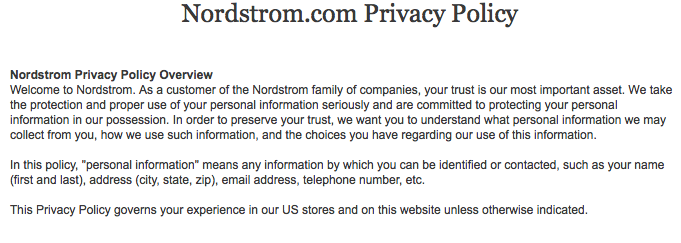It’s 2015, and companies are finally getting the hang of data.
Big data has been around for years so it’s about time! More and more companies are using data to profile their customers to generate relevant products and marketing strategies. A study by Forbes and Teradata found that 78% of marketers are incorporating data into their marketing.
As companies explore the possibilities behind data analytics, we have noticed a few trends in the datasphere. Companies that choose to incorporate these trends in their marketing strategies may notice an increase in ROI and an edge over their competitors.
Unsiloing data
Companies are beginning to break down barriers in data sharing. Un-siloing data allows different departments to combine different data sets. A company’s entire stock of customer information may be stored in one simple Data Management Platform. This storage system makes finding, organizing and sharing information an easier, more efficient process.
For example, a company’s IT department may have an impressive set of internal customer information. That same company’s marketing department may have a large collection of CRM data. Companies that unsilo data pool together both sets of information, creating a single in-depth consolidation of data.
The larger data pool is beneficial to both IT and marketers, as the departments will have access to a more complete profile of their customers. This will help both departments provide a more accurate understanding of their customers, generating a more personalized, relevant shopping experience.
Privacy
Over the past year, information security and privacy has been a growing concern amongst the public. With big security breaches like the Sony hack and the iCloud celebrity photo scandal, privacy is a growing concern for many.
In response to public concern about security, companies must employ data protection and safeguarding into their data management. Companies that cannot confidently ensure that a person’s private information will stay private, the likelihood of data sharing will decrease.

Additionally, easy-to-access privacy policies can increase trust between customers and a company. Provide an in-depth statement informing customers of their privacy rights can increase likelihood of sharing personal information.
Other than putting the public at ease, companies with protective measures in data management will have less risk at security breaches. Data encryption, multiple passwords and security audits may take a little extra and effort. But investing time into safeguarding customer information is vital to prevent big scandals and data breaches.
Data in Real-Time
Companies are beginning to use data in real-time to engage and connect with consumers. In the past, data has been used to create content for consumers, and is set to be viewed at a certain point in time.
Today’s marketers are integrating data and marketing strategies in real-time, to offer content that is even more current and relevant. This real-time marketing is commonly seen across social media platforms.

Google’s Fifa World Cup campaign is a prime example of real-time data integration. By analyzing Google’s search engine, data experts curated sharable images and facts for its users. This later fueled more discussion about relevant topics for Google users. This real-time analysis helps businesses understand why their target audiences share, engage and spread content.
As data analytics becomes increasingly popular, we expect that companies will employ a real-time data/marketing strategy similar to Google’s. Companies will begin to utilize social media more often, allowing their customers to share, engage and spread content easier.
More Personalization
Personalization has been a hot topic since data was first introduced to the marketing world. And, as more companies grow friendlier with data, feelings toward personalization are sure to follow suit.
Personalization increase also directly correlates with the shift of millennials as the largest purchasing power. As millennials are generally more open to sharing personal information, companies can adjust marketing to incorporate a more personalized, 1:1 marketing feel. A global study by SDL found that 46% of millennials are willing to provide personal information to businesses, in order to get rid of irrelevant marketing.

As data continues to evolve, understanding where data is headed can be a big asset to companies. Anticipating changes in data and adjusting strategies accordingly can help your company stand out amongst competitors and remain a consumer favorite.

